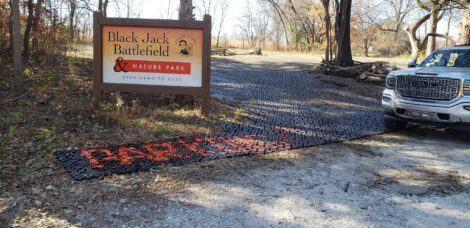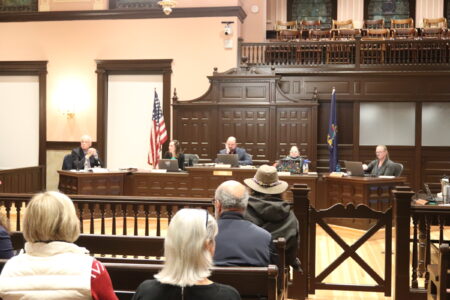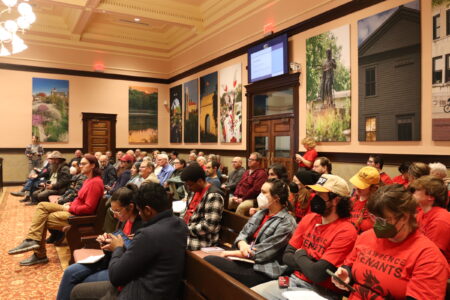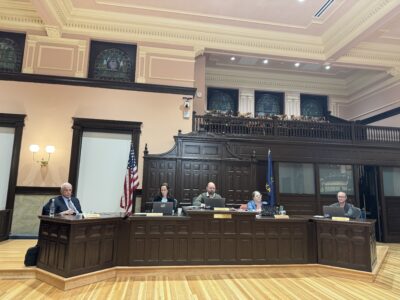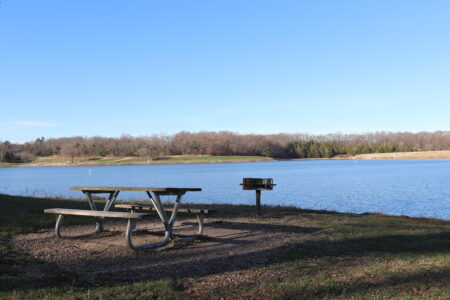Nonprofit guiding behavioral health crisis center says it’ll soon be presenting a plan for partial opening
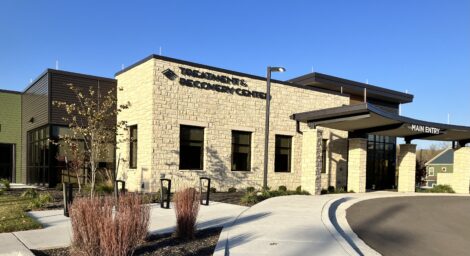
photo by: Kim Callahan/Journal-World
The Treatment and Recovery Center of Douglas County is pictured on Saturday, Oct. 22, 2022.
Though Douglas County staff says there’s a sizable to-do list before the Treatment and Recovery Center of Douglas County will be ready to open, the nonprofit responsible for managing the center told the Journal-World that it hopes to present a plan in early December for a partial opening.
At Wednesday’s Douglas County Commission meeting, Douglas County Administrator Sarah Plinsky shared a list of 26 deadlines and deliverables that the county had asked of the nonprofit, Behavioral Health Partners, that remain outstanding.
In terms of items that had a deadline attached, there are nearly a dozen tasks that Plinsky said remain unfinished. That list largely consists of legal documents, such as an amended prefunding agreement that was due Sept. 30 and operational contracts due in draft form Oct. 1 and in a final version Nov. 1. A lease is supposed to be due by Nov. 15, but the information Plinsky shared says that date assumes an operating agreement was in place by Oct. 31; that item also remains unfinished.
Other tasks were due at various points throughout the month of October, such as emergency medical services and law enforcement training, a staffing and resource workflow and budgeting for the next two years.
An even longer list of general tasks combines with the list of dated ones to bring the total number of outstanding items to nearly 30. The second list includes plans for staffing and accreditation, fee schedules for patients, an inventory of equipment and furniture, and hiring a human resources team. The center also lacks a website and patient portal, Plinsky said. That seems to be only partially true, as the center has an informational website that directs people to either visit a page listing local resources or to call Bert Nash Community Mental Health Center if they need help now.
“… Some of them are important for day one, for initial understanding and for those operating agreements to be in place,” Plinsky said Wednesday night. “Some of them could wait; a full equipment and furniture inventory is not needed day one, but these are things that are going to be needed pretty quickly to make sure we are planning and preparing for the crisis center appropriately.”
Sarah Bishop — the CEO of Lawrence-based Coneflower Consulting, who is now handling communications for Behavioral Health Partners — responded to the Journal-World’s request for comment Thursday afternoon.
Perhaps most notably, Bishop said BHP is planning to present another status update to the Douglas County Commission at its Dec. 7 meeting, where it will unveil a plan for opening the Treatment and Recovery Center’s access center — a space located at the main entrance of the building for patients experiencing less severe crises to be seen in consultation rooms — followed by the center’s 23-hour observation and 72-hour stabilization units.
When asked about a projected timeline at Wednesday’s meeting, Plinsky wouldn’t offer any specifics.
“I don’t think we know that today, but I think we hope to know it soon and to have what we think we can get done on what timeline,” Plinsky said. “BHP has secured new counsel; that will be super helpful in navigating some of these agreements and looking at the agreements that were put into place, so I think that will help expedite it.”
Bishop said the BHP board and leadership team have been working with county staff and community partners to address the outstanding items on Plinsky’s list. While Bishop said many of them necessitate the involvement of a number of partners, BHP is confident that each of them can be achieved quickly and efficiently with the county’s collaboration and support.
As the Journal-World reported, county commissioners at their meeting Wednesday asked about the county’s current relationship with Connections Health Solutions, an Arizona-based behavioral health crisis center that county staff has been engaged in conversations with about managing the facility instead of the local nonprofit Behavioral Health Partners.
Plinsky said that Connections continues to provide consulting services for the county, and that she’s afraid the ideas of the facility being managed locally and opening quickly are “at times in opposition.” The chair of BHP’s board, Cindy Yulich, told commissioners that board members have agreed that they may need to go to Connections for advice, but that they should only be engaged with the out-of-state company for as long as it brings value to the table.


